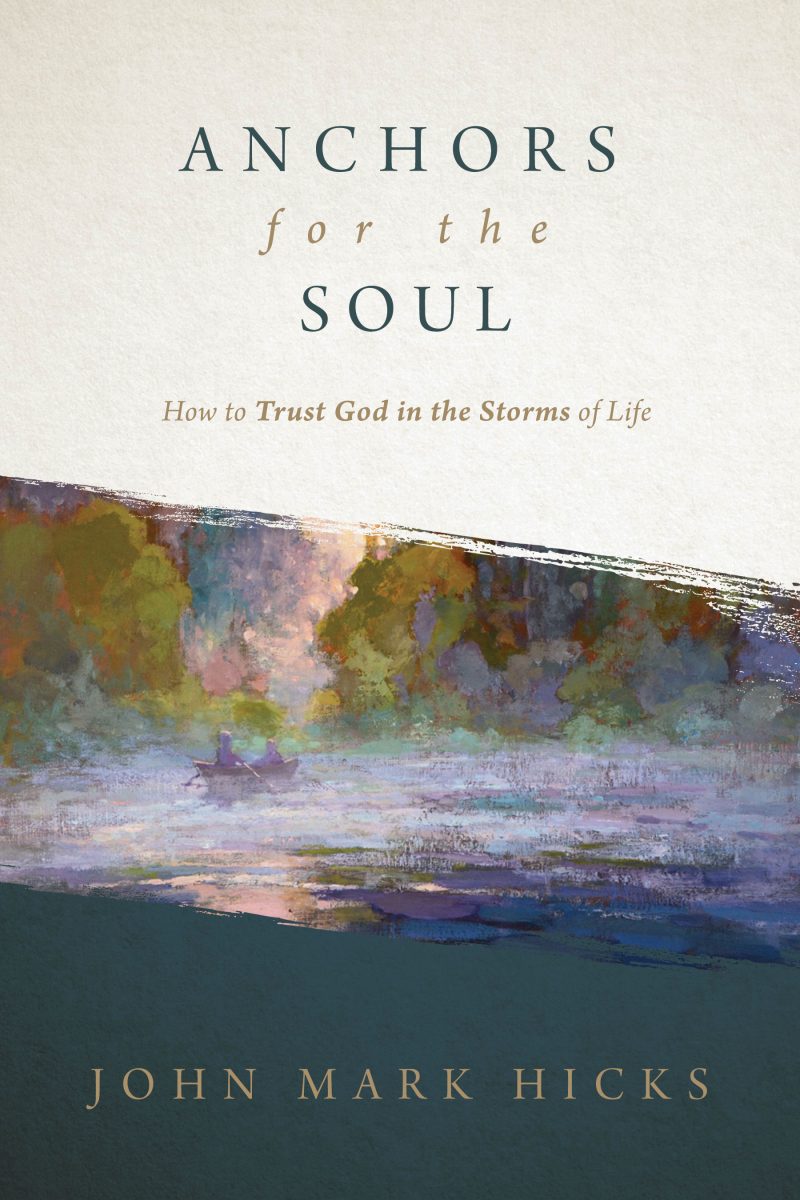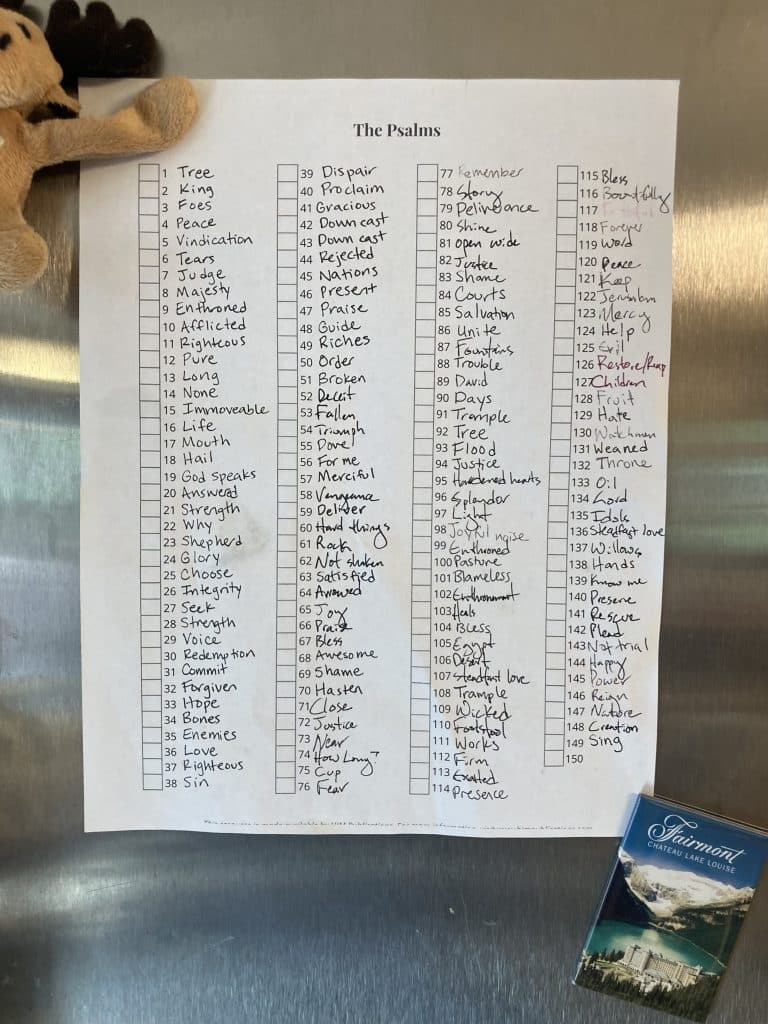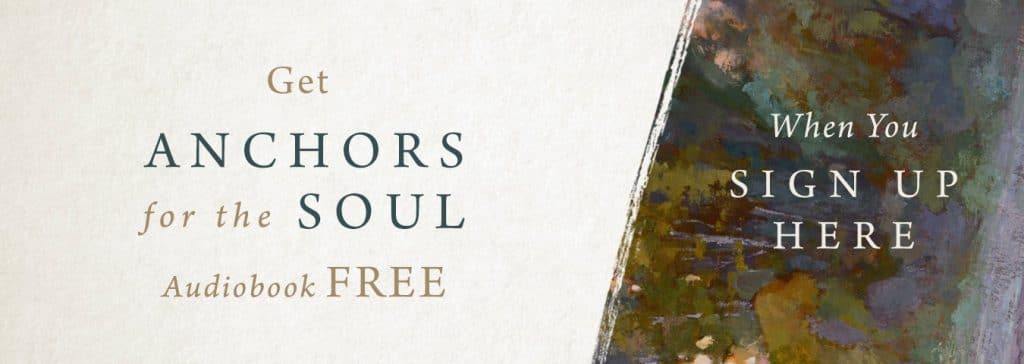Praying the Psalms feels intimidating, but with this guide and free PDF tool, you’ll be equipped to understand and effectively pray the Psalms.
Family leaders: Read a supplemental guide here on how to teach kids to pray.
One of the most important spiritual practices for me has been praying the Psalms, reading the Psalms, and meditating on them to connect with God. They give voice to the full range of our spiritual experiences, and unlike any other Scripture, they pave a pathway for the heart into which the Spirit readily flows.
They’ve been especially useful to me in the journey from my head to my heart.
In fact, nothing has been more helpful in the journey from my head to my heart than meditating on the Psalms.
When we read the Psalms, God reads us through them.
Praying the psalms is a common spiritual practice that spans the ages. When I began a form of this, it opened up a whole new world for me of experiencing God through Scripture.
Part of what sparked this journey came through advice from a mentor of mine. About to turn twenty-seven years old, I asked him, “What advice do you have for me for the rest of my twenties?”
He said, “Enjoy God in Scripture.”
His answer happened to coincide with examples of this through biographies and other books I was reading at the time.
Why Pray the Psalms?
For example, I was reading David Benner’s books at the time, like those in his trilogy, The Spiritual Journey (which is comprised of Desiring God’s Will, Surrender to Love, and The Gift of Being Yourself). He too said that meditating on Scripture was the most important practice in helping him make the move from head to heart.
Side note: The move from head to heart does not mean bypassing one’s mind; it means transcending mere head knowledge into the heart. Head knowledge can be useful. It can actually be very useful—but only when it’s integrated with our hearts, which, biblically speaking, is the full inner life of a person.
During that season, I also learned that both Dietrich Bonhoeffer and C.S. Lewis daily meditated on Scripture (Bonhoeffer’s was for thirty minutes a day and Lewis’s was for fifteen minutes a day on a New Testament passage).
So, why focus on the Psalms?
The Psalms were important to Jesus, to Paul, and even people who lived a little later in Christian history (but not as contemporary as Bonhoeffer and Lewis). John Wesley (b. 1703), for example, knew the Psalms closely. He could quote the Psalms from his heart as those of us today often quote the New Testament from memory.

John Mark Hicks’ Anchors for the Soul
How to Trust God in the Storms of Life
This book is the perfect resource for a reading group or church class. It combines rich Bible study with a personal narrative of living through devastating storms. John Mark Hicks is a trustworthy guide for the storms that lie ahead.
— Leonard Allen, Dean of the College of Bible and Ministry, Lipscomb University
I highly recommend Anchors for the Soul to individuals and groups who want to explore what it means to trust God despite this life’s suffering and pain. John Mark’s vulnerable testimony resonates and gives hope for the storms of life.
— Dr. Sara Barton, Pepperdine University Chaplain, Malibu, CaliforniaGet Product
A PDF Tool for Praying the Psalms
As you get into the Psalms, use our free tool to track your progress! It’s an instantly downloadable PDF here. My family uses this simple one-page tool to read the Psalms together. Individuals can use it, too!
How to use this tool:
- Click on this link to access this simple PDF.
- Download and print the PDF (make sure to select “fit to page” when you print it).
- Systematically read through the Psalms, one Psalm per day for 150 days.
- When you read each Psalm, mark the box next to the Psalm and write one word to the right of the Psalm number that will help you remember what that Psalm is about for future reference.
Tools are only as useful as our understanding of them, though. So, we must first understand how to use a tool like this.
I share more about using this tool for reading and praying the Psalms in family worship here.
This tool is very simple. My hope is that this will help us all navigate the Psalms with more ease.
My family is about to finish reading the Psalms, and here’s our chart—one Psalm from the finish line.

I’m showing it to you before it’s done to remind you that it doesn’t have to be flawless and you can be on a journey. It took us literally years to finish this, but we did it, by the grace of God!
Engaging the Psalms
After reading this article, you’ll have context, motivation, and practical guidance for using this simple tool—for systematically praying the Psalms, along with reading and meditating on them.
In fact, in this article, I will address those in that order:
- Praying the Psalms
- Reading the Psalms
- Meditating on the Psalms
But even before we get into each of those practices, I must say something about the substance of the Psalms, originally a set of songs, which seem to be underutilized and undervalued in the church today.
Understanding the Psalms as a Whole
The Psalms are 150 songs of praise, lament, outcry, outrage, disappointment, and everything in between.
Old Testament scholar Walter Brueggemann helpfully categorizes all Psalms into one of three types: psalms of orientation, psalms of disorientation, and psalms of reorientation.
Orientation—where the Psalmist’s gaze is oriented toward God and things look hopeful.
Disorientation—where the Psalmist’s gaze is oriented away from God and things look grim.
Reorientation—where the Psalmist moves from disorientation away from God back to orientation toward God.
A fun exercise: see if you can peg each Psalm with one of these categories as you read them. It helps you to see their situational use.
It’s important that we express the full range of spiritual experiences we have, and the Psalms are valuable for that. Our life experiences often lead to spiritual experiences. For example, the birth of a child is a life experience, and how one experiences God in that experience is a spiritual experience.
The Psalms are especially helpful for expressing lament.
Worship services today, in my experience, rarely make space for lament as the Psalms do. Roughly half of the Psalms are Psalms of lament (see more about this in Anchors for the Soul (by John Mark Hicks, Chapter 4, “God Understands”).
We need to create space in our souls for the pain of sorrow, the grief of despair, even the torment of guilt. That’s only a few of the spiritual feelings we experience. Perhaps these are more than feelings or emotions, though. Perhaps these are rather senses or experiences.
The Psalms help us exercise, if you will, our spiritual senses—even if we are not currently experiencing what we read in the Psalms. Below, I describe how we can address this issue as we pray the Psalms.
While some traditions go as far as to say we must pray and sing only the Psalms in worship…
I don’t go that far.
But I will say directly to worship leaders and those who influence worship leaders: Why don’t we worship more like the Psalms?
In practice, this can be singing songs with literal quotations from the Psalms. But it can even be as simple as more fully incorporating the full range of experiences of the Psalmists into our worship experiences. I think that honors God’s heart as captured by the Psalmists of our Holy Scriptures.
Let’s not just praise with the Psalmists, let’s lament, get angry, and even shout with the Psalmists.
So far, I have covered the substance of the Psalms.
Once we embrace the substance of the Psalms, then we can better pray, read, and meditate on them.
Learn more about Anchors here.
Praying the Psalms
A famous writer who lived at the Abbey of Gethsemani in Kentucky, Thomas Merton, challenged me through his book Praying the Psalms to encourage families to pray the Psalms together.
You might be thinking, Pray the Psalms… what does that mean?
I wondered the same thing, so stay with me here: Praying the Psalms goes beyond reading the words about someone else’s experiences; praying the Psalms lets them become your own.
It’s the same as singing the words of a hymn during Sunday morning worship—only it’s praying with the Words of Scripture.
When we pray the Psalms, we allow the Words of God to become our words back to God.
We can allow this book of poetry to stretch souls and mature us into a beautiful people, which is our vision at HIM Publications.
Praying the Psalms challenges us because it challenges those who only pray spontaneously. Even more, those of us who might “spiritualize” our spontaneous prayers as better than structured prayer are disciplined by praying the Psalms as we learn to let God’s Word train our hearts and transform our minds.
So, then the challenge is this: How do we pray the words of Psalms when we’re not personally experiencing that which they speak of?
My solution to that challenge is this: Just as we allow the songs of Sunday morning to shape us, let’s allow the Psalms to shape us. In fact, the Psalms teach us what words to pray. They teach us what we’re allowed to say to God.
Consider praying the Psalms as taking a class on prayer. It’s prayer school.
Also, consider it to be taking a class on empathy. That is, sometimes we pray the words of Psalms we’re not currently experiencing because we’re praying them on behalf of another person.
We can practice empathy by praying the Psalms.
Take issues of injustice, pain, and despair. Do you know someone who feels those? You can intercede for them through prayer by using the Psalms.
- Allow God’s empathy, who breathed these precious Scriptures, to become your empathy.
- Allow the pains of the Psalms to become your pains.
- Allow the joys of the Psalms to become your joys.
- And allow the hope of the Psalms to lift your soul.
I love the Psalms where the writer tells his soul what to do. What a peculiar thing!
Psalms 42 and 43 repeat these lines three times:
“Put your hope in God,
for I will yet praise him,
my Savior and my God.” (NIV, 1984)
Even the Psalmists doesn’t always feel the words they’re praying. They allow the practice of praying them, though, to change their souls.
Isn’t that a major aspect of prayer—to be changed?
We don’t simply, or even primarily, go to God in prayer to affect his mind. That happens, for sure, but prayer more often, since it’s communion with God rather than just petitioning to God, changes our minds. Hopefully it changes our hearts and lives, as well.
The result of not only reading but also praying the Psalms is that our souls gain a depth and a height to them that is otherwise, I believe, very difficult to experience. It’s like we learn to express what it feels like, spiritually speaking, to ride the crests and troughs of life.
The crests of life come when we experience highs in life; the troughs of life come when we experience lows in life.
And the more experience we have in connecting with God through the Psalms, the better, because it seems that we learn to trust God in the storms of life. That’s what John Mark Hicks’s book, Anchors for the Soul is about.
Life always presents challenges, but having God with us allows us to experience those “storms” differently than we would if we went through them without God. Storms are low experiences, and meeting God there is a gift when it happens.
The more practiced we are in both the highs and the lows, the faster we get at willingly moving from the highs to the lows of life without capsizing.
So, we can pray “I will yet praise him” in one breath about God, and in the next breath, we can pray to God, “Why have you rejected me?”
The crests and the troughs.
We can even pray the words of Psalm 22, “My God, my God, why have you forsaken me?”—knowing in our hearts what comes at the end of that Psalm of reorientation:
“For he has not despised or disdained
the suffering of the afflicted one;
he has not hidden his face from him
but has listened to his cry for help.”
When we pray the Psalms, we pray also with Christ, because he prayed the Psalms, too. And, because of that, I believe we can follow Jesus more faithfully (if not at least more holistically).
What I’ve found is that as God uses his Word in the Psalms to transform my heart, my hands, feet, and voice more easily follow, which is a liberation of sorts, a loosening of our soul. The loosening of our soul is exactly something that God wants for us. We have freedom in Christ after all.
So, that covers reading and praying the Psalms, but I want to end on meditating on the Psalms because meditation ties it all together.
Simply Reading the Psalms
If you’re not ready to pray the Psalms, start by simply reading them! As a reminder, instantly download our free, one-page PDF tool for praying the Psalms here.
Again, here’s another, closer-up view of my family’s Psalms chart filled out. It’s not perfect but we’re about to make it through! The final one we’ll wrap up this week.
Reading the Psalms regularly should be every Christian’s practice.
So, read the Psalms, know the Psalms, and maybe even memorize a Psalm—Psalm 1 is a great start. It’s only six verses, and you can memorize it in a week’s time with a little effort.
Meditating on the Psalms as Prayer
One way to pray the Psalms is by meditating on them. Going back to what I introduced above, I want to make the case here for meditating on the Psalms in particular.
Use the tool I introduced above for your personal mediations, not to mention your family devotions, too.
When I talk about meditation, I really mean Christian spiritual meditation. And while there’s two main types of meditation—focusing on something and clearing one’s mind—I only practice the type which requires focusing intently on something.
I define meditation in terms of what we do with our mind, heart, and body.
Meditation is:
- Focusing your mind on a particular truth for enough time to allow your body to relax.
- Opening your heart to be honest and vulnerable to your true self and to God’s voice.
- Relaxing your body to experience the physical manifestations of peace.
That’s not a technical definition, but simply the way I think about meditation.
As Eric Metaxas chronicles in Bonhoeffer, Dietrich Bonhoeffer would daily meditate on a set passage of Scripture that others from his church and movement would meditate on as well (at least when they went underground). This presented a unifying effect among his network of disciples when they were scattered during World War II. Bonhoeffer, Metaxas reports, would choose one word, phrase, or even the whole verse to meditate on. I’ve found this supremely helpful to emulate.
A few practical suggestions on how to meditate through the Psalms:
- Find a quiet place in your home.
- Sit upright and in a relaxed position.
- Pray and ask God to speak to you through his Word.
- Pick one chapter of Scripture to read.
- After you read, select one verse that impacted you as you read.
- Meditate on one word, phrase, or the entire verse for at least ten minutes.
I say at least ten minutes because I’ve found that it takes at least ten minutes for me to get to and rest in the relaxation of meditation. Some can do it faster, I’m sure, but that’s my advice. Spending fifteen to thirty minutes in meditation, again in my experience, has proven to be most fruitful.
The Psalms in particular are great for meditation because our interpretation of them is already less analytical by nature than most other genres of the Bible. Poetry does not call on the mind as much it does the heart. So, the Psalms are a great place to start. Because…
- Meditating on the Psalms goes beyond reading them.
- Meditating on them goes beyond praying them.
- Meditation brings reading and praying them together.
In fact, meditation empowers us to effectively read and pray the Psalms.
But let me address a common hesitation to meditating among Christians.
Should Christians Meditate?
Many religions and philosophies, especially of the East, have utilized meditation for various reasons. Many Americans, especially of late, have reported on the general benefits of meditation.
Meditation has been shown to:
- Help with anxiety
- Help with mental health
- Help overcome depression
So, why don’t more Christians meditate?
Let me simply say that meditation is totally a Christian practice:
Isaac meditated (Genesis 24:63)
Joshua meditated (Joshua 1:8)
And the Psalmist suggests meditation for all people (Psalm 1:2)
While the word “meditate” doesn’t appear in the English New Testament (at least not in the NIV, 1984), we know that this is a practice of our Jewish spiritual forerunners, and we can be confident of its value for us today because their Scriptures are our Scriptures, too.
Spiritual meditation presents additional benefits for Christians, and this is where Christian meditation takes on a specific meaning.
Anyone can meditate and experience benefits, but when Christians meditate, our experience is unique because of the work of the Holy Spirit in our hearts.
This presents a game-changer. We’re not simply meditating alone and on our own; we’re meditating before God, if we’re taking part in spiritual meditation.
Of course, we can slip into unspiritual meditation, but when we invite the Holy Spirit to guide us as we open our hearts to God’s Word in Scripture, we present ourselves ready to be influenced by God himself in a trans-rational way.
What I mean by “trans-rational” is that God can change parts of our hearts in ways that transcend our own understanding, healing aspects of our inner person that we are not consciously aware of.
Spiritual meditation is easiest when meditating on Scripture, especially the Psalms.
Meditating on the Psalms grows our soul deeper, wider, longer, and higher because it’s taking God’s song book and letting our hearts sing it to God, by God, for God’s pleasure.
It’s inexplicable.
But it’s real.
Pray, read, and meditate on the Psalms.
If you do this, then your whole life can be transformed into a walking, living, breathing prayer to God. What an adventure! I hope you’ll join me in this journey as I continue learning how to connect with God through the Psalms.
Remember to download the free PDF tool for reading, praying, and meditating on the Psalms here.
Family leaders: Read a supplemental guide here on how to teach kids to pray.
Relevant Resources:


